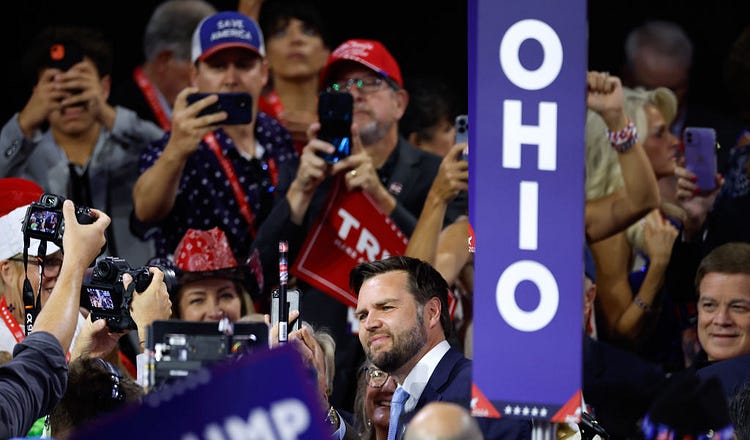Hillbilly Veep

U.S. Sen. J.D. Vance arrives at the Republican National Convention in Milwaukee yesterday after Trump announced him as his running mate. (Photo by Chip Somodevilla via Getty Images)
He once called Trump ‘America’s Hitler.’ But yesterday, J.D. Vance was given a hero’s welcome at the RNC.
278
MILWAUKEE, Wisconsin—It’s just before 4 p.m. and everyone at the Republican National Convention is jockeying for a glimpse of Senator J.D. Vance. A woman kicks off her bedazzled heels, then stands on her seat barefoot to get a better view. A delegate tells me he just borrowed a woman’s lipstick to scrawl “VANCE” in capital letters on a white Trump sign.
…
Continue Reading The Free Press
To support our journalism, and unlock all of our investigative stories and provocative commentary about the world as it actually is, subscribe below.
$8.33/month
Billed as $100 yearly
$10/month
Billed as $10 monthly
Already have an account?
Sign In

